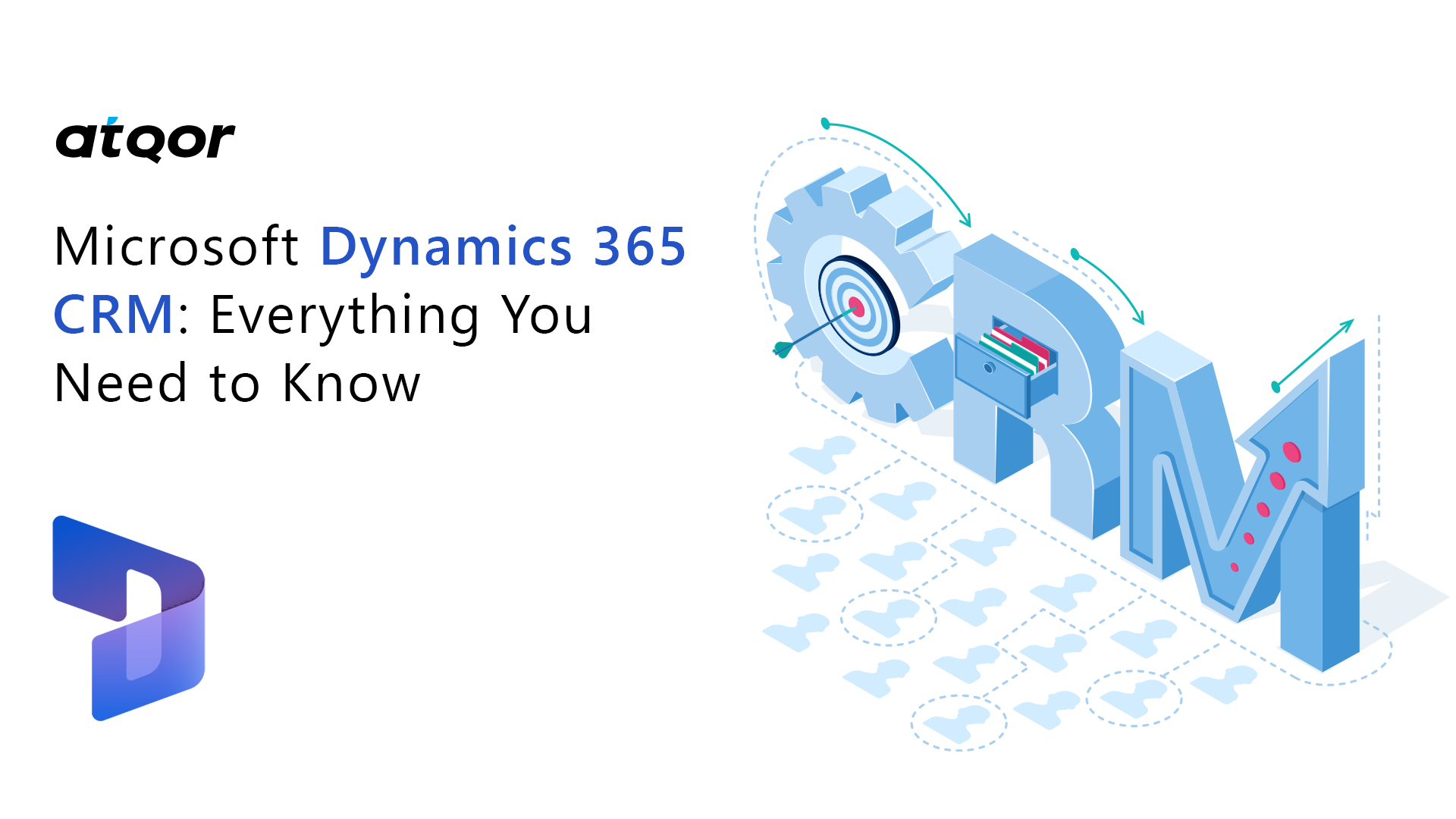May 5, 2023 | Digital Marketing , Microsoft Dynamics 365

Microsoft Dynamics 365 is a suite used primarily for Microsoft’s business applications. It offers ERP (Enterprise Resource Planning) and CRM (Customer Relationship Management) solutions. Microsoft Dynamics 365 CRM has the functionality to capture the users’ attention and touchpoints to interact and generate a single customer view. Dynamics 365 includes a list of applications like Dynamics 365 Sales, Dynamics 365 Marketing, and Dynamics 365 Customer Service. Extended CRM has a specific solution to handle the apps for the dealer, vendor management, employee self-service, patent management, and asset management.
Here, this article will understand all about Dynamics 365 CRM and how it helps to deliver businesses across the globe.
Dynamics 365 CRM allows employees to be more productive and knowledgeable. It comes with a deeper insight to perform better by adding opportunities and customer relationships. With sales and marketing features, you streamline the business and communicate efficiently. It helps to integrate with Microsoft products by using powerful built-in tools to improve overall productivity.
One of the benefits Dynamics 365 CRM brings to your industry is co-piloting features, as shown below. Co-pilot helps sellers to reduce manual and clerical tasks and add automated tasks like analyzing the discussion, creating tasks, adding meeting notes, etc.
Secondary, there’s integration with Microsoft and non-Microsoft products such as Power Apps, Power BI, SAP, Oracle, and more. Integration helps users to get a unified experience where the data and insights are collected from various sources.
Customization and flexibility come with D365 CRM. It helps users tailor the software by creating custom entities, workflows, and integration with third-party apps. At the same time, the user gets high scalability, security, and reliability with Dynamics 365 as it’s built on the Azure cloud platform. By leveraging the service, one can get an inbuilt AI feature that allows the user to make informed decisions. Lastly, users get a unified platform that combines CRM and ERP functionality to enable businesses to manage operations from a single platform.
Dynamics 365 is divided into many categories: sales, marketing, field service, customer service, and other project operations.
Improve the sales operation in the health industry and prioritize the activity. The Dynamics 365 sales app allows users to use and manage the sales process by encompassing a dashboard. Users use the app to identify the targeted customers, which leads through the sales pipeline, manage the customers, and generate essential reports. Moreover, Dynamics 365 can be used to forecast sales and manage its pipeline.
Source: MD365
In the above image, the Teams chat is embedded in CRM, where sellers can carry on one-to-one conversations. The chat can also be used in the customer service and field service modules. In the picture, we can see the suggested chats, and contacts, on the side panel for display. This panel helps customers with easy access.
Microsoft Dynamics 365 customer services help businesses optimize service operations, boost customer relationships, and improve the productivity of service agents. As a Microsoft solution partner, we offer a complete Microsoft Dynamics 365 CRM suite to help customers unleash excellence and deliver exceptional sales productivity. A few services we provide are business consulting, planning, implementation, customization, CRM migration, upgradation, and other optimization. Know how to improve customer relationships in the financial industry and help deliver personalized communication.
Source: D365 Service
Using the Microsoft Dynamics 365 field services is well-designed for various businesses to complete their work at customer premises or homes. Additionally, the D365 field service features include schedule optimization and asset management. Choosing to connect with an excellent Dynamics 365 field service helps an organization achieve workflow automation along with improving the mobility of the staff. Moreover, you can analyze the fundamental benefits of Dynamics 365 for the financial industry can help to prevent significant data loss.
With D365 Field services, you can use the predictive services and get connected experiences. Use the service to get tailored customer engagements, elevate employee effectiveness, and optimize service operations using IoT and AI tools.
Enable marketing automation by building Microsoft Dynamics 365. Work on the same platform and share data with improved collaboration. Use the solution and perform targeted marketing by adding a defined journey to engage and pass the sales leads. With D365 CRM marketing, the organization can implement, evaluate, plan, and support the team using technology to solve real marketing challenges.
Source: D365 Field
The above image is an example of proactive service delivery that uses IoT sensors to remotely detect and solve problems.
Customers use D365 in mainly three ways.
Software that does not need installation and should be logged into the software is called SaaS (Software as a Service). Also, the SaaS instance for Dynamics 365 can be hosted on Microsoft Azure or managed services. Use D365 in Cloud to remove unwanted hardware and add the data to cloud storage.
Generally, on-premises is called business data deployment as it’s one of the traditional ways to deploy software. It can be a good choice for businesses to host their own data.
It is known as Edge or Cloud, where the deployment is carried out in the integrated format. Hybrid can use the system offline for various industries, especially for manufacturing and retail.
Among Salesforce and Dynamics 365, the main difference is the accessibility of respective products. Both works as modern CRMs which can be accessed through a web browser. Also, D365 is much cheaper than Salesforce and comes with flexible licensing. While Dynamics 365 can be integrated and set up as a part of Salesforce. It can also work as a standalone CRM and sometimes be challenging to serve as an ERP system.
Time varies based on the development, and it should quickly meet the customer’s requirements. All of it depends on specific factors like business size, number of users, or whether you need an upgrade or a completely new solution. If you are still confused, connect with Microsoft Dynamics 365 consultant if you need Dynamics 365 migration or Dynamics 365 integration.